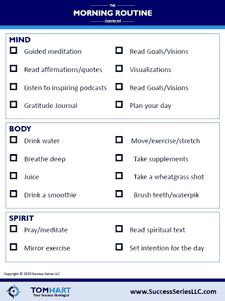#GrowYourLife #BuildYourBusiness
Life Area: Professional
Topic: Consulting Contracts
7 Key Contract Clauses for the Independent Consultant
I have been an independent contractor and service consultant at various times throughout my career and have come to learn, sometimes the hard way, the key provisions consultants must have in their agreements if you are to survive on your own. These clauses are commonplace among the “big boys” contracts, so be sure to have them in yours to assure you limit your liability and, most importantly, get paid:
Getting paid is not the only issue
Consultants who are well-established with a large clientele do enjoy certain advantages. Most have formed their own limited liability companies and have set contracts that they have devised and refined over the years, providing protections and solid payment clauses. And they will quickly drop clients who renege on any terms of that contract.
But for the newbie consultant who is not well established, it is often the client who presents the contract, and the hungry consultant is at that client’s mercy if they want the work. But there are some “red flags” in contracts that consultants need to look for – clauses that can result in trouble down the road. Here are some of them:
- Ownership of the work product Who owns the work product? Clients will want that ownership transferred to them. This is normal. But, it should be clearly stated in any contract that ownership will not be transferred to a client until you have received payment in full for that work product.
- Indemnification This is a legal term that relates to who is liable should there be any lawsuits based upon the work product or the use of that work product. Once you transfer work product to a client, that client should assume all liability for how that work product is used. Your liability should end as soon as that transfer occurs. If a client insists that you retain any liability, walk away.
It should be clearly stated in the contract that ownership of the work product will not transfer to the client until you have received payment in full.
- Getting paid Never sign a contract in which the terms of payment are vague. While you may have agreed upon a price, there should be a schedule of payments. I always insist on an up-front retainer that gets applied to the last invoice. If the project is lengthy and complicated, there should be scheduled payments along the way. Thus, you can stop your work if a scheduled payment is not made. You may even want to insist that the client provide credit card authorization, so that you can bill through his/her bank.
- Unforeseen circumstances/events You should insist upon a clause that protects you if and when events prevent you from meeting agreed upon deadlines. You may face emergency surgery and a few days in the hospital. Spell out the circumstances that may delay delivery, and provide that there will be no penalty for certain events and circumstances.
- Reimbursable expenses Consultants must anticipate expenses involved in creating work product. The option is either to include these expenses in the total fee or to bill for them separately, if the client is to assume them. This must be spelled out in the contract. Do not sign a contract if expenses are not yet known and the client is unwilling to add those into the cost of your work. Reimbursement for expenses should be detailed and firm. One practice I use is to have an approved amount in the contract (say $500) over which an expense would need to be pre-authorized, thus also creating a maximum of which you can take-on an expense without having to go to the well for every nickle and dime.
- Clear definition of the work scope As the retained consultant it is your obligation to produce a product or service. A contract with a client should identify exactly what that work product is. But what if, once that product has been delivered, the client needs more than was originally agreed upon? This happens more often than not, and the client may request changes, revisions, or add to the scope of the originally agreed-upon parameters. The smart consultant will refuse to sign any contract that does not include additional payment for changes the client may add after the fact. I find this most easier accomplished by simply adding a provision stating that additional work outside of the agreed-to scope would be billed at a stated hourly rate.
- Termination Unscrupulous clients will attempt to put termination clauses in “for cause.” These are never good for the consultant. Whether it is the client or the consultant who wishes to terminate an agreement, the reasons must be clearly defined in the initial contract. And this is why a progressive payment arrangement must be in place. If a client should decide to terminate a contract, then the consultant is entitled to payment for work completed to date. By the way, what’s good for the goose should be good for the gander, therefore make the termination clause both ways (exercisable by either the client or the consultant), and usually with 30-days notice.
A consultant’s work life is not easy. There is the constant search for new clients and the need to keep existing clients on board. In their drive to generate income, new consultants often get caught up in contracts and agreements that do not adequately protect them. These seven red flags should go a long way in helping consultants to determine if they should accept work from a client or not. Not paying attention to these contract details as a consultant may result in work for which you never receive payment on time. Or in full. Or at all. Don’t be that consultant.
Please share this post with your family and friends.
 My mission is to inspire people and organizations to live their highest vision.
My mission is to inspire people and organizations to live their highest vision.
I am a Success Strategist and Master Coach. I provide transformational coaching and training for individuals and organizations to help you Grow Your Life and Build Your Business by getting clear and focused on what you want, why you want it, and how to create it. Learn more about me at SuccessSeriesLLC.com.
There is no better endorsement than that of a friend, so if you like what you’re reading or are using my many FREE resources, tell a friend to join the Tom Hart Success Series Community, to receive email notifications of new blog posts and Talk with Tom podcast episodes, learn of upcoming events, and other news, by visiting my website and clicking on the offer to receive my FREE monthly resource by leaving their email address OR forward this to them and have them simply click here (we respect your privacy and do not tolerate spam and will never sell, rent, lease or give away your information to any third party).



